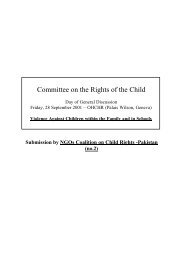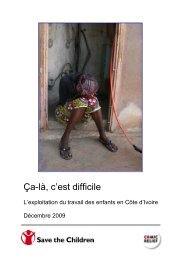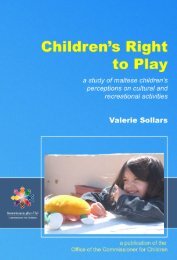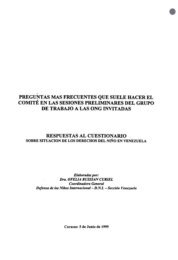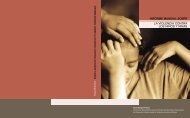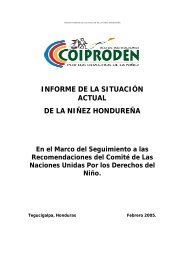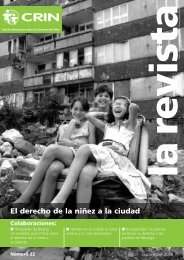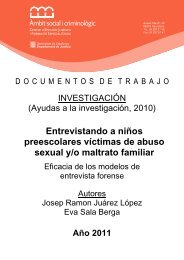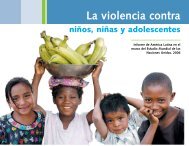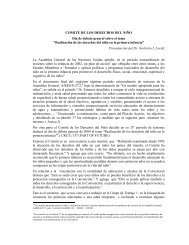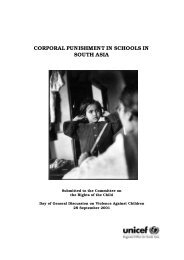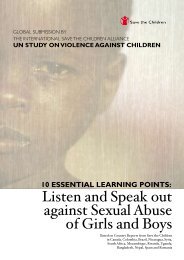Universal Periodic Review: The Status of Children's Rights - CRIN
Universal Periodic Review: The Status of Children's Rights - CRIN
Universal Periodic Review: The Status of Children's Rights - CRIN
You also want an ePaper? Increase the reach of your titles
YUMPU automatically turns print PDFs into web optimized ePapers that Google loves.
8 Conclusion<br />
With the UPR yet to complete its first cycle <strong>of</strong> reviews, it is too early to judge its effectiveness. Indeed, the real test will<br />
be when States participate in the second round <strong>of</strong> reviews, where they will be obliged to give an update on their<br />
progress in implementing the recommendations from their first review. However, as the findings <strong>of</strong> this report show,<br />
some key trends have already emerged, notably the way States and indeed other Stakeholders are interacting with the<br />
UPR, and which issues are being raised and which ones are neglected.<br />
Drawing conclusions on the report's two main objectives<br />
To what extent are children's rights addressed in the UPR<br />
• Is one in five mentions satisfactory? Approximately one fifth <strong>of</strong> all points made across the UPR process are<br />
children's rights focused, but is this really satisfactory given children cut across all human rights clusters?<br />
Furthermore, the findings highlighted below, raise concerns over which issues are being addressed adequately<br />
and which ones are not.<br />
• States are avoiding more controversial issues: <strong>The</strong> findings have clearly shown how States tend to focus on,<br />
and accept mostly recommendations on 's<strong>of</strong>ter' issues, such as education and health, and neglect, or reject<br />
recommendations on more controversial issues , such as corporal punishment or juvenile justice.<br />
• NGOs have an important role to play: NGOs lag behind UN bodies and UN Member States in the extent to<br />
which they address children's rights in the UPR. Indeed, with States shown to avoid the more controversial<br />
issues, NGOs have an important role to play in addressing the full spectrum <strong>of</strong> children's rights issues and<br />
ensuring neglected issues are brought to the forefront <strong>of</strong> the agenda.<br />
<strong>The</strong> role <strong>of</strong> NGOs: <strong>CRIN</strong> hopes that the findings <strong>of</strong> the analysis act a as a rallying call for<br />
NGOs to play their part in ensuring all children's rights are addressed.<br />
Lessons learned by and practical tips for NGOs<br />
• NGOs are still learning about the UPR: <strong>The</strong> mechanism differs from existing mechanisms in a number <strong>of</strong><br />
ways. Organisations must assess their own situation, together with the situation in the country they are<br />
reporting on, and consider the range <strong>of</strong> approaches available to them before engaging with the UPR.<br />
• Two different perspectives: A clear distinction exists between those who engage at the Geneva level<br />
(primarily international NGOs) and achieve success by seeing their issues raised in the final recommendations,



